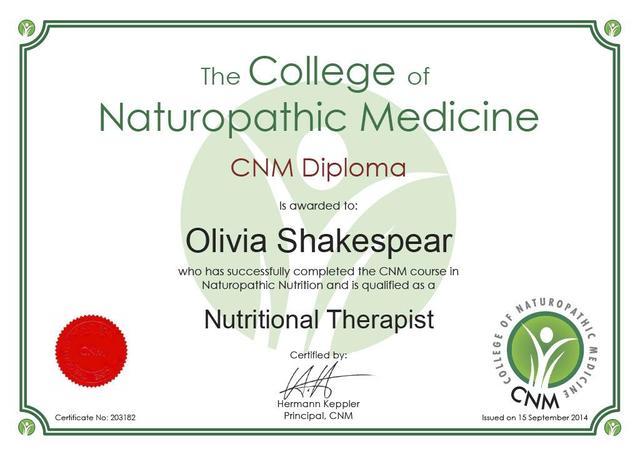Olivia Shakespear
About Olivia Shakespear I love all things nutrition! But most of all I love helping people find balance with food. So many of us have an unhealthy relationship with food - as I did for many years. I trained as a nutritional therapist and specialise in working with people who are binge eaters or have disordered eating. The key is to have support on a daily basis, which is how I work. |

Olivia Shakespear doesn’t have reviews yet.
Click the button below to leave the first one!
New session 3 Month Health Coaching for Disordered Eating & Binge Eating already available! Book it now
New article Letting Go of Disordered Eating for Good already available! Read it now
New session IgG Food Intolerance Testing Package - UK only already available! Book it now
New session Nutrition Consultation and Follow Up already available! Book it now
New article The Mind Gut Connection already available! Read it now